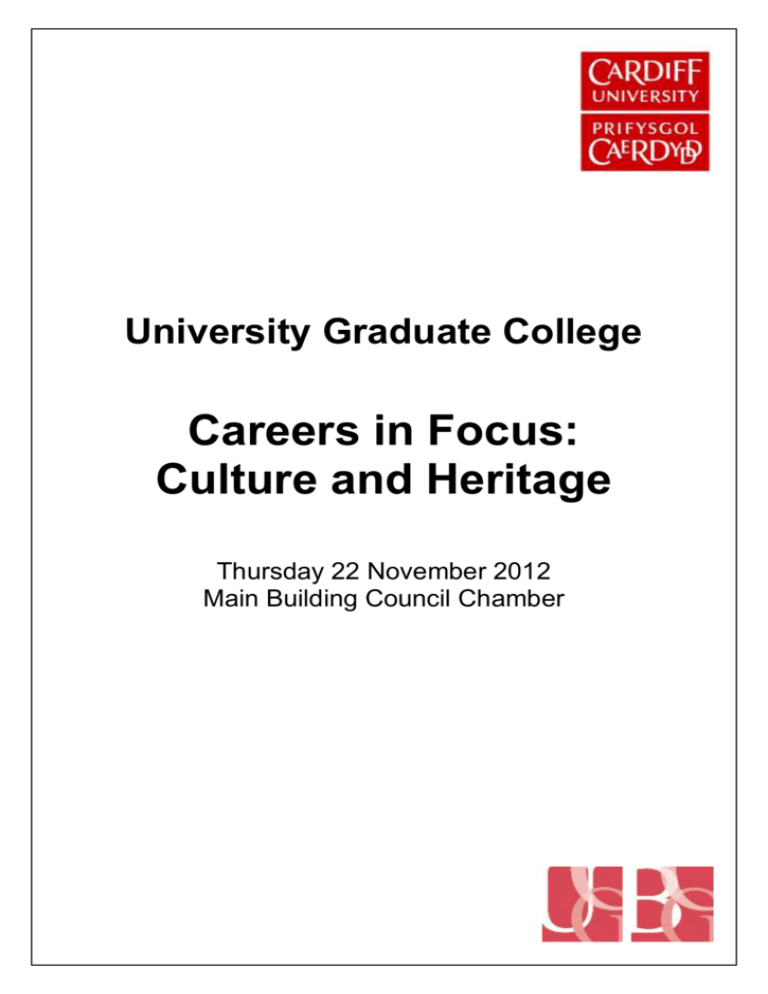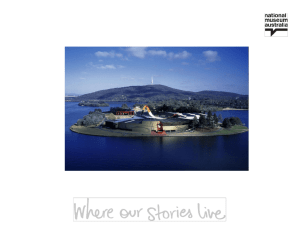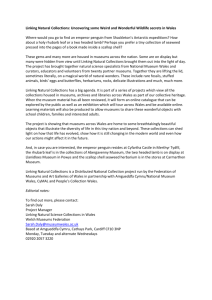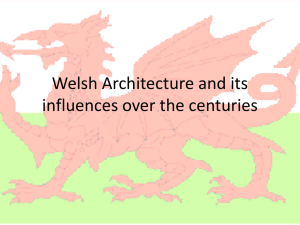Culture and Heritage - University Graduate College
advertisement

University Graduate College Careers in Focus: Culture and Heritage Thursday 22 November 2012 Main Building Council Chamber Louise Barker: Head of Recording and Investigation, Royal Commission on Historical Monuments The Royal Commission is the investigation body and national archive for the historic environment of Wales. It has the lead role in ensuring that Wales’s archaeological, built and maritime heritage is authoritatively recorded, and seeks to promote the understanding and appreciation of this heritage nationally and internationally. Louise Barker has worked at the Royal Commission for eight years and is Head of Recording and Investigation. She has some sixteen years practical archaeological experience and is a specialist in survey, encompassing both traditional methodologies as well as the latest digital technologies. Her work at the Commission principally involves the survey and interpretation of archaeological sites and landscapes, and the presentation of these to a wide ranging and varied audience. Sioned Hughes: Curator: Politics, Trade, Religion, St Fagans: National History Museum I graduated from University of Wales, Aberystwyth in 1993 with a degree in history and went on to work at the National Library of Wales as an assistant Archivist and Library Assistant for two years. This gave me valuable experience that helped me secure a place at the University of Manchester's Art Gallery and Museum studies MA course between 1995-6. I currently curate the political, trade and religious collections at St Fagans and have responsibility for collecting new and more diverse material that will enable St Fagans to become a National History Museum rather that a Folk Museum. This involves collaborating with and inviting participation by community groups on temporary exhibitions or projects and re-interpreting collections and some of the historical building on-site so that the stories they tell are more relevant to people's lives today. St Fagans: National History Museum is a unique institution. It combines on one site functions which are generally delivered by separate institutions in other countries: the cultural learning experiences of a heritage site, an open-air museum of translocated historic buildings, gallery exhibitions, as well as the national archive of Welsh oral testimony and vernacular culture. Although there are other open-air museums in the UK and in Europe, there are no direct comparators. St Fagans is already a very successful museum. It is Wales’ most visited heritage attraction with between six and seven hundred thousand visitors per year and is the second most visited open-air museum in Europe. It is already the largest provider in Wales of learning outside the classroom, with over 360,000 family visitors and 90,000 formal education visitors. Recently a survey conducted by Which? Travel magazine of over 7,000 participants voted St Fagans the number one UK museum/gallery, while a customer satisfaction score of 90% won it the description of the UK public’s favourite attraction. Denise Lavis: Workforce Development Adviser, CyMAL (Museums, Archives and Libraries Wales) CyMAL is a division of the Welsh Government which helps promote and protect the culture and heritage of Wales by supporting museums, archives and libraries. The division: Provides advice and support to local museums, archives and libraries in Wales Supports and develops professional standards, expertise and skills Manages grant schemes for museums, archives and libraries, and provides advice on other sources of funding Develops research and baseline information across the sector Is the Sponsorship Division for the National Library of Wales and Amgueddfa Cymru - National Museum Wales Advises the Minister for Housing, Regeneration and Heritage on policy matters As Workforce Development Adviser, I am responsible for providing support to museums, archives and libraries in Wales in all matters relating to workforce development which includes the development of the sector workforce development strategy, careers guidance, advising on continuous professional development, development of vocational and academic qualifications for the sector, liaising with relevant sector skills councils, managing workforce development bursaries, and organising an annual training programme for the sector. Mike Lewis Museums and Heritage Officer, Newport Museums and Heritage Service Mike’s role includes financial management, strategic planning together with the dayto-day management of all aspects of service delivery for the Museum and Art Gallery, the Medieval Ship Project and the Transporter Bridge. His post requires openness to transformation and innovation in the current financial climate and flexibility towards service delivery. Solutions like passing the day-to-day running of Tredegar House to the National Trust illustrate this approach. This solution both protects the heritage asset while at the same time improves service delivery for a given level of Local Authority investment. Ross MacFarlane Research Engagement Officer, Wellcome Library The Wellcome Library (http://library.wellcome.ac.uk) is a collection of books, manuscripts, archives, films and pictures on the history of medicine from the earliest times to the present day. Located in London, it’s the largest Library in Europe devoted to the history of medicine, but owing to the diverse collecting interests of its founder Sir Henry Wellcome, our holdings situate medicine in its broader social, cultural and historical contexts. My academic background is in History and Social Anthropology. I’m also a qualified Archivist and have worked in that role, cataloguing a range of collections for such institutions as Tate, the Royal Society, King’s College London and the Wellcome Library. My work at the Wellcome is now very much focused on academic engagement with our collections: organising and often leading supervised visits to the Library for classes with a range of academic background. My outreach role is heavily built upon my practical experience as an archivist: a profession that gives you a ‘hands on’ encounter with history. Hannah Price: Archivist, Glamorgan Archives At Glamorgan Archives we help people to discover Glamorgan’s past by exploring documents ranging from the 12th century to present day. Seven archivists seek to collect records relating to Glamorgan and its people from such diverse sources as hospitals, schools, campaign groups, police forces, businesses, collieries, parishes, local authorities, as well as private individuals. Once transferred records are held in secure strongrooms under the best environmental conditions and are packaged in appropriate materials. Archivists catalogue collections onto an online database so that people can locate material which may be of interest to them. Researchers visit the Archives from all over the world to view records in our public searchroom and receive advice from our staff. We also participate in outreach activities with schools, universities, local and family history groups. After graduating from Cardiff University in 2005 with a degree in History and Welsh History I completed an Archive Administration MScEcon course at University of Wales, Aberystwyth. Following positions at the BBC Written Archives and the Shakespeare Centre Library and Archive I started working at Glamorgan Archives in 2008. In addition to the core roles of an archivist I also co-ordinate our volunteers programme and arrange work experience placements for school pupils and graduates considering in a career in archives. Dr Sioned Williams: Curator (Furniture), St Fagans: National History Museum My role broadly involves the interpretation and research of the national collection of furniture and clocks which is all housed at St Fagans: National History Museum. I also curate a small collection of furnishing fabrics. I am one of 8 other curators working within the Department of Social and Cultural History, all of which have specialist subject areas which cover the vast collections. My work is varied and a typical work day can involve writing text for exhibitions to viewing a kitchen table in someone's house. I am currently working on developing content for new galleries at St Fagans as part of the Creu Hanes / Making History Project. I have a degree in Welsh History and Welsh from Cardiff University. I was lucky enough to stay on at the School of Welsh History at Cardiff to study for a PhD on aspects of the material culture of the gentry of north-east Wales between 1540-1640. My research work involved studying household inventories and other documentary evidence regarding the furnishings of the period. This eventually led to my appointment at St Fagans in 1996.






